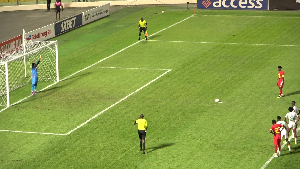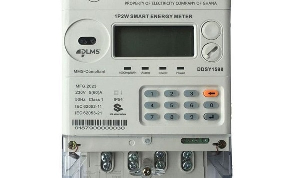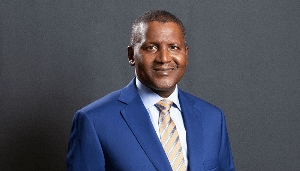Programmes Coordinator for Empire of Golden Age Leadership, EGAL, an NGO and organizers of the 2019 World Menstrual Hygiene Day in Manya Krobo, is advocating for the establishment of first aid centers in various schools in the country to address the perennial challenge school girls endure during their menstrual cycle.
Daniel Owiredu believes this step could significantly address the “trauma” girls experiencing menstruation for the first time go through.
If it is necessary, there should be sanitary pads as first aid in various schools, said Mr. Owiredu in an interview.
His call comes as Ghana on Tuesday, joined the rest of the world to celebrate International Menstrual Hygiene (MH) Day which is a global advocacy platform started in 2014 and observed annually to promote good menstrual hygiene management practices and raise awareness of the challenges females face during menstruation.
Based on the theme; It’s time for action on MHM,” with focus on action in the critical area of MHM education, the theme seeks to advocate for policy and decision making to prioritize MHM and remove taxes on menstrual hygiene products, provide gender and disability friendly toilets with changing rooms to provide security and privacy for girls during menstruation and intensify education to reduce myths and misconceptions surrounding menstruation.
Mr. Owiredu who expressed concern over the difficulties girls faced at school during their menstrual cycle wondered what affected girls would do under such circumstances. “If there is no first aid in the school what will the girl do?” He quizzed.
As part of his proposals on what could be done to assuage the problem, the programs coordinator urged sanitary pad manufacturers to roll out a scheme for basic schools. “There should be a consensus among the various sanitary pad manufacturing industry in Ghana,” he said, adding that this should be done under a government umbrella and rolled out through a scheme for the basic schools.
The programmes director who disclosed that most washrooms they visited in various schools were locked called on educational institutions to ensure the provision of functional washrooms in the schools where students can visit during their menstrual flow to relieve themselves. This he hoped would serve as a convenient point for young girls during their menstrual periods.
On her part, national chairperson of Lady Pharmacists Association of Ghana, LAPAG called for waiving of taxes on sanitary pads to enhance its affordability for the girl child. “There should be a way to waive taxes on sanitary pads so that the girl child can get it affordable”, suggested Naana Quayson.
The LAPAG national chairperson who asserted that the association’s involvement in menstrual hygiene stemmed from its agenda to promote women and child health took time to explain the menstrual process to the girls.
Naana Quayson while explaining that the menstrual process is not sickness but a natural phenomenon, counseled them not to cite the condition as reason to absent themselves from school.
Stressing on the need for the girl child to have safe menstrual cycle, Naana Quayson called for a collaboration of LAPAG and the education authorities on the need to provide national resources and urged teachers and students, boys and girls alike, to understand the menstrual cycle and to appreciate the menstrual process.
The aim of the association, she added is to ensure that sanitary pads are affordable, available and accessible to the girl child.
International Menstrual Hygiene Day is to address the challenges female go through during menses.
It is to break the silence, change the negative social norms around MHM, engage decision-makers to increase political prioritization and catalyse action for MHM at both national and sub-national levels.
General News of Friday, 7 June 2019
Source: Michael Oberteye

















